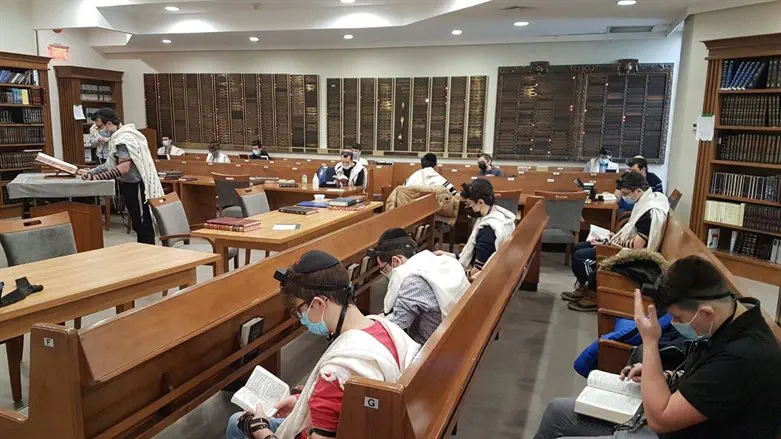
Rabbi Dr. Amir Mashiachwas an Avreich in Chicago, 1999–2002, today Rabbi of the "Heichal Gavriel" community, Petach Tikva and head of the Teacher Training Program, Ariel University
Judah steps forward and speaks harshly to the ruler of Egypt, who is, in fact, Joseph. Rabbi Kook explains (Shemuot Ra'ayah, Parashat Vayeshev) that this harsh exchange represents a deep ideological dispute among the brothers. This conflict began before Joseph was sold and will persist until the Messianic era. At the heart of the disagreement lies the vision for Israel's holiness in the world and its relationship with the nations.
Joseph advocates for a universalistic approach, asserting that the role of Israel is to be a light unto the nations:
"Joseph said that the sanctity of Israel lies in teaching wisdom to the misguided, engaging with the nations, and educating them in the ways of God... bringing holiness even to the nations of the world."
In contrast, Judah represents a particularistic stance, emphasizing separation:
"Judah said that the sanctity of Israel must remain distinct from the nations, a people dwelling alone."
Judah fears that Joseph's approach is dangerous. Engaging with the nations in an attempt to enlighten them could lead to negative influences on Israel and, God forbid, dim Israel's own light.
Thus, it was Judah who suggested to the brothers:
"Let us sell him to the Ishmaelites—Joseph will assimilate among the nations, and we will see what this leadership brings."
Judah reasoned that killing Joseph would achieve nothing since, while one can kill a person, one cannot kill an ideology. Ideas are impervious to bullets—and who, more than the people of Israel, knows this truth?
Joseph is sold to Egypt, but he thrives there. He creates a reality where even Pharaoh, the king of Egypt, acknowledges God:
"And Pharaoh said to his servants, 'Can we find anyone like this man, in whom is the spirit of God?' And Pharaoh said to Joseph, 'Since God has made all this known to you, there is no one so discerning and wise as you.'"
Joseph successfully fulfills the mission of being a light unto the nations. Yet the danger still looms. Is this the path for the many? Perhaps Judah's safer path is preferable.
It seems that, as always, the golden mean and a middle path is the correct answer. A synthesis of the two approaches is necessary, as neither holds the exclusive truth. Interestingly, in the dialogues between Judah and Joseph, there is a mediator, an interpreter:
"They did not know that Joseph understood them, for there was an interpreter between them."
Rashi explains that this interpreter was Menashe. This represents precisely the middle path. Menashe stands between Judah's particularistic approach and Joseph's universalistic vision. He is "between them," a rare fusion of these ideologies.
This helps clarify another question. When the tribes of Gad and Reuben requested to settle on the eastern side of the Jordan, Menashe was not initially among the requesters. Yet, by the end of the negotiations with Moses, half of the tribe of Menashe is mentioned as joining them. This aligns perfectly with Menashe's synthesizing role—balancing Joseph's universalism with Judah's particularism. Half of the tribe settles in Israel, like Judah, and the other half resides abroad, like Joseph.
This is Menashe's path: the path of integration, of "the interpreter between them," who knows how to balance Israel's sanctity in its homeland with its sanctity as a light to the nations. From Menashe's model, we draw inspiration for our own time.
For comments: a.mashiach@gmail.com